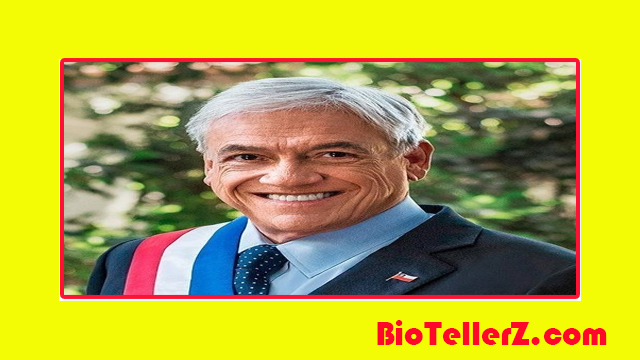
Younge Age
When Piera was a young child, his family moved to the United States, where his father, a civil servant, worked for the Corporation for the Promotion of Production (CORFO), a government organization in Chile, for four years. The family returned to Chile in the middle of the 1950s but left again in 1965 when Piera’s father was appointed Chile’s ambassador to Belgium. At the Catholic University of Chile, Piera earned a degree in commercial engineering in 1971. With the aid of a Fulbright scholarship, he returned home to finish his education, earning both a master’s and a doctorate. Harvard College awarded me my D. in economics in 1976. He served as a professor of economics at the Catholic University of Chile during the 1970s and 1980s. Additionally, he taught at the Valparaso Business School, which is now Adolfo Ibáez University, and the University of Chile.
Piera worked in the banking and consulting sectors prior to founding the enormously successful Bancard in the late 1970s. Through his company, which brought credit cards to Chile, he amassed a billion dollar fortune. LAN Chile, the Colo Colo soccer team, the national airline of Chile, and a for-profit hospital were among the other enterprises he held sizeable stakes in. Piera also founded the Fundación Futuro, a non-profit organization devoted to the preservation of water resources and the advancement of renewable energy sources, in 1993. On the island of Chiloé in Chile, this organization also built the ecological park Tantauco Park.
Piera began his political career in 1989 by supervising Hernán Büchi’s vain attempt to win the presidency. During Chile’s military coup of Augusto Pinochet (1974–1990), Büchi served as finance minister. In the same year, Piera won election as a senator for East Santiago, and he held that position until 1998. He made an unsuccessful bid for the presidency in 2005 under the banner of the National Renewal party. He went on to defeat former president Eduardo Frei (1964–70), who was the candidate of the Coalition of Parties for Democracy (Concertación de los Partidos por la Democracia; CPD), in the second-round runoff election in 2009 because popular incumbent president Michelle Bachelet was unable to run for reelection. The 20-year reign of the CPD came to an end with Piera’s election victory.
First Presidential Term
Less than two weeks before Piera was supposed to take office, Chile was struck by an earthquake with a magnitude of 8 (see 2010 Chile earthquake). While Bachelet oversaw the initial relief efforts, Piera visited the disaster sites and started making public statements in his capacity as Chile’s president. The inauguration ceremony for Piera on March 11 was followed by two powerful aftershocks. 33 Chilean miners were trapped in a collapsed mine in August 2010 for 69 days before being freed. As a result, Piera’s fame soared. However, in May 2011, when significant student protests erupted in favor of overhauling the archaic, underfunded, and class-based public education system, his administration was met with a formidable challenge. In 2012, labor unions began to demonstrate after numerous attempts to quell the unrest, including changes to the cabinet, largely failed. Even though Chile’s economy grew steadily, there was a high level of economic inequality in the nation, which stoked unrest and increased dissatisfaction with Piera’s administration. After that, he was disqualified from seeking office again, and Bachelet assumed leadership in 2014.
Second Term of Government
2017 saw Piera running for president once more. It was expected that the front-runner Piera would win a majority in the first round of voting to prevent a runoff because Chilean voters appeared ready for a change of government in response to a number of political scandals and the country’s weak economy. Against an opposition of eight, he ultimately won with more than 36% of the vote. More than two-fifths of the vote went to two left-leaning candidates: Beatriz Sánchez of the broad-based Broad Front (Frente Amplio) coalition and Alejandro Guillier, a former television news anchor, of Bachelet’s New Majority (Nueva Mayora) coalition. Guillier, who received about 23% of the vote (Sánchez received about 20%), won the right to face Piera in the next round. On December 17, 2017, Piera received about 54 percent of the vote to win re-election as president.
In a survey conducted at the end of 2018, 47% of respondents said Piera was handling the presidency well. Within a year, this percentage would drop to just 12%, the lowest approval rating for a Chilean president since the country’s return to democracy. This rapid decline was a reflection of the widespread dissatisfaction with Piera’s handling of the social unrest that shook Chilean society beginning in October 2019, when protesters took tothe Santiago subway system in the streets to protest a fare increase.Shortly after, those protests intensified as calls for increased pay, amendments to the education, healthcare, and pension systems, a new constitution, as well as a broader discussion of Chile’s extreme economic inequality, were added to the list of demands. As the demonstrations spread and turned violent, the police frequently responded with brutality. By the end of November, there had been more than 20 protester fatalities and more than 2,000 injuries as a result of the demonstrations.
Related Posts
Donald Trump – Best Guide in 2023
